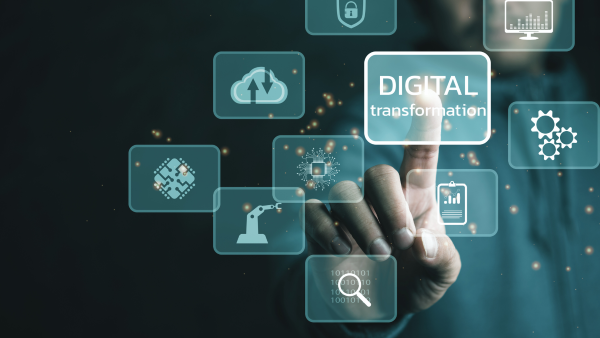Why Digital Transformation is Important in the Race to Net Zero
If someone was to ask you – do you want to help save the world, I’m guessing most of us would say “yes”!
But ask managers of SMEs, operating within the current economic challenges of cost increases, consumer confidence decreases and conflict impacts, then the answer is more likely to be a “maybe, but…” Where do I start?
This is where digital transformation comes in.
20 per cent of emissions reductions come from Digital Transformation
(Source World Economic Forum)
Digital transformation is the incorporation of computer-based technologies into business processes in order to realise operational efficiency, cost optimisation, customer and supply chain engagement. In other words, it’s about using systems to deliver new products and services, to improve existing ones, to streamline processes, to gather business-critical data and respond to customer demands.
But, as with any change, people are critical to the success of digital transformation. Businesses need to become more agile, accepting uncertainty and ultimately seeing it as an opportunity to thrive. It requires a shift away from traditional thinking and toward a more collaborative, experimental approach.
Whilst digital transformation is about resilience and innovation, there is a further significant bonus from this journey – a positive impact on sustainability and the race towards Net Zero. The World Economic Forum has stated that 20 per cent of the cut in GHG emissions will come from digital technologies in four key ways:
- Foundational technologies – using functionality within ERP systems to drive operational efficiencies, improve planning, enable supply-chain collaboration, reduce wastage and monitor costs
- Sensing & control technologies – using monitors to track energy consumption, enabling real-time adjustments and intervention
- Decision making technologies – using AI to predict maintenance needs, reducing down-time and resource waste
- Enabling technologies – using cloud-based tools to facilitate remote working and on-line meetings.
Digital transformation is no longer just about staying competitive, it is an essential enabler to the achievement of a sustainable future. Businesses benefit from reduced costs, reduced risks, improved supply chain and customer relationships as well as demonstrating a commitment to achieving Net Zero.
However, and we know there’s always a “however”, these technologies gather data, but a Net Zero strategy requires targets, measures, performance and reporting. Digital transformation incorporates data from many different sources, not just ERP, so ways of collating that data, analysing and tracking progress to Net Zero will be key.
At Gradient, we’ve always known that robust and accurate data is critical for successful ERP projects. This is why we are partnering with YuzeData, bringing their Data Automation platform to SMEs.
As Elizabeth Mills from YuzeData said to us recently…
“Supply chain is poised to make a significant contribution to Net Zero over the coming years. We are very happy to see the collaboration amongst suppliers at all levels to support global brands in their Net Zero ambitions. YuzeData and Gradient have the opportunity to support these clients by making a Net Zero strategy a sustainable business imperative”.
For all businesses, digital transformation is a business imperative and extending it to address climate change is a moral obligation.
So the question can no longer be where you start; it has to be when will you start your digital transformation journey.






